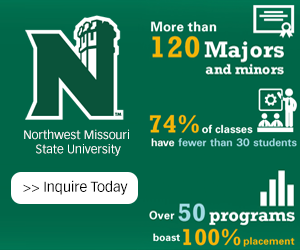High level, competitive sporting is one of the leading forms of entertainment not only in th United States, but worldwide. It’s no wonder, then, that sports broadcasting is a highly-desired field for students looking into broadcasting or just fans of sports in general. As with any area this competitive, your first step in landing that dream job is making sure you commit to a strong education.
The world of sports broadcasting is very competitive. In addition to being a highly publicized and romanticized career, sports broadcasting's status as a niche of the entire broadcasting world somewhat limits available jobs – and even more of them are taken off the board by experienced athletes and coaches who get to bypass the job-advancement grind and jump right into broadcasting after retiring from the game! International students who want to get into this field are going to need to study sports broadcasting to have a shot.
Finding a Program
Devoted sports broadcasting programs are few and far between in the US, though they exist. Due to their popularity and unique nature, sports broadcasting majors often require a separate application from that of the main college or university. This supplementary application might involve video or audio footage of you giving a mock sportscast, written sports content such as blogs or articles for your high school newspaper, or additional admissions essays addressing why you want to study sports broadcasting specifically. The best way international students applying to sports broadcasting programs can set themselves up for success is to get involved in sports coverage during high/secondary school – even if your school doesn't offer much, start on some sports writing on your own to hone your skills and demonstrate your passion.
Specialty sports broadcasting programs are slightly more common at the two-year level, where they are meant to give students a jump start in sports broadcasting before transferring on to complete a four-year program. The trick is finding an equivalent four-year program for your two-year sports broadcasting degree – but you can do that through a number of other majors.
Broadcasting and Journalism
The majority of international students who study sports broadcasting will do so through related four-year majors which may or may not designate a specific sports broadcasting track. A broadcasting or journalism major is a great choice, as the technical proficiency learned in the former and writing skills gained in the latter set international students up fairly well for sports broadcasting even before taking sports classes into account. Both broadcasting and journalism majors will often run sports-specific electives too, allowing students to hone their skill in sports commentary, sports writing, and more (hint: these classes are especially prevalent at schools with high-profile athletics programs!).
Other Program Options
Other, less traditional four-year programs that might lead to a career in sports broadcasting include sports management and the very general major of communications. Neither of these is a bad choice by any means, it's just that they're a little more difficult use to focus on sports broadcasting specifically than most journalism or broadcasting majors are. While sports management is great because it's all about sports, the wide range of issues studied – from business and law to the rules of individual games – takes some attention away from sports broadcasting. Communications majors cover an even wider range of topics, and are also often more academic than hands-on. Students in either of these majors should go out of their way to get experience in broadcasting or and journalism through electives, making themselves better suited to the very specific sports broadcasting skill set.
Get Hands-On Experience
Regardless of major, international students studying sports broadcasting should do all can to get extracurricular sports experience during school. Many schools are affiliated with local sports television and radio networks, so exploit those connections for an internship, get great real-world experience, and begin to develop your own professional contacts. You can also earn sports broadcasting experience within the school, as most colleges have athletic programs and their own new programs which allow students to cover intercollegiate sports.
Certificate Programs
Another choice for sports broadcasting is to go through a more intensive certificate program. Some schools, like the Sportscasters Mentoring Group, offer short, sports-specific programs built around the idea of practical experience and professional mentorship.
Sports broadcasting is very competitive, but with the right education you'll be better prepped than most to break into it!

